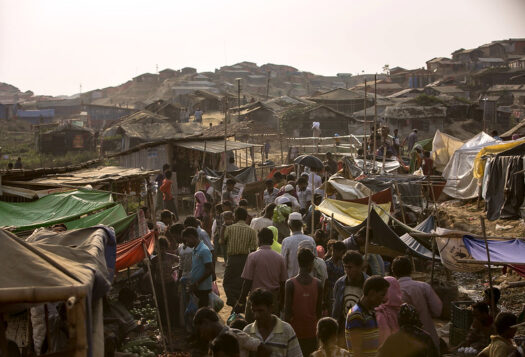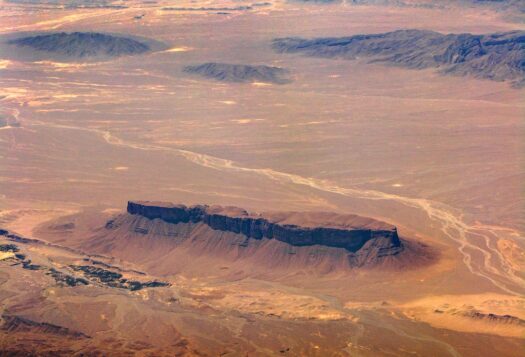
Human existence in the 21st century is threatened not only by traditional state-based hazards, but also by transnational security challenges, among which is that of water. An emerging nexus of climate change, melting glaciers, and the human quest to control water will lead to new power struggles. These struggles will result in either cooperation or conflict over water resources.
One of the essential questions we now face regarding humanity’s future is how to handle the increasing scarcity of water. Water’s exceptional nature reveals that no other resource can combine all the elements of life – only water can fasten land, air, sea, and people in a never-ending cycle of life. Terje Tvedt elaborates the importance of water in his book A Journey in the Future of Water. He establishes three important observations:
- We live in “an age of uncertainty” because of climate change and its consequences.
- This age of uncertainty and the threat of water crises will create new power struggles over water.
- Regions in the world will change drastically as a result of extensive water projects.
Water has no boundaries – its flow is transnational. However, demarcation of boundaries and subsistence of nation-states have made water a valuable commodity. Almost half of the global surface water is distributed in 263 international river basins, while groundwater resources cross beneath 273 international boundaries. It is the creation of national boundaries which has complicated and made water resources a political subject. Being one of the most unevenly distributed resources, the abundance or scarcity of water causes droughts in some areas and floods others. In addition, climate change, high levels of water consumption, growing population, and structural and physical water scarcity are challenges being faced by every region of the world – some of which are highlighted below.
China: Tibet could be called Asia’s “Water Bank” because the plateau is home to a massive system of rivers and tributaries from which water flows and nourishes the Yangtze, Yellow, Indus, Brahmaputra, Salween, Irrawaddy, and Mekong rivers. These rivers are significant assets politically, economically, and culturally to China, Laos, Thailand, Bangladesh, Vietnam, Pakistan, India, Bhutan, and Nepal. This makes Tibet one of the most strategically important areas of the world.
The Netherlands: The Netherlands is a politically and socially advanced country. However, Vanessa McKinney contends that this status is threatened by its being a geographically low-lying nation. Half of the country’s surface is one meter or less above sea level, and an eighth of the country is below sea level. Without a system of dams and dykes, the country would be prone to flooding. Flooding would have negative political and economic implications in terms of lasting evacuations and displacement.
Greenland: Shifting ice conditions in Greenland, which for years has astonishingly been constant, will be important for shaping patterns of rising sea levels and changing climate around the world. Melting ice could have geopolitical ramifications in this region. Superpowers will compete for control and new resources, making the Arctic region a hot spot.
Egypt: Countries in the Nile River Basin are heavily reliant on this renewable water source for their food, water, and security needs. Egypt’s and Sudan’s previous monopoly over the basin had caused tension. However, new agreements to increase cooperation among upstream nations, the restructuring of water allocation, and the proliferation of dams and irrigation networks could result in more equitable water distribution in the region. However, Egypt has responded to these developments with threats. If a solution to the water shortage isn’t found, it could ignite interstate conflicts. The Nile River Basin highlights the fact that the emerging water crisis has created new power struggles over water.
International relations are entering a paradigm shift. Every state is making efforts for the accumulation of water reserves, with upstream states being the most successful due to their geographically advantaged positions. New alliances – where upstream and downstream countries work in cooperation against states that threaten the supply of water – may be formed. Water can be used as a tool for making a state do something against its wishes.
Creating agreements or treaties for water cooperation and successfully implementing them can reduce the risk of water wars. However, the international system is full of uncertainties, and states often prioritize their own interests. How states cooperate over water resources instead of prioritizing their own interests will determine our future. If efforts are to be made, they have to be made soon, and at the national, regional, and international levels beginning under a framework of systems and instruments for water cooperation. For the success of such a framework, I recommend the following:
- States around the world realize that climate change is an existential threat.
- An international organization for climate change and survival (IOCCS) be formed, inviting states from around the world to sign up.
- Regional IOCCS offices should be opened, where each state takes a yearly turn hosting international, regional, and national actors for discussion, evaluation, assessment, and suggestions related to water issues.
- Countries initiate a government department devoted to making changes in coordination to what rules or suggestions have been agreed.
- Yearly assessment of all states from around the world is compiled at IOCCS, where states pool money for improving, assisting or aiding (technological, material support, third part mediation) states facing water related problems.
When water is scarce, probabilities for cooperation between states become high. As a 2012 U.S. Intelligence Community Assessment of global water security states, “a water-related state-on-state conflict is unlikely during the next 10 years. Historically, water tensions have led to more water-sharing agreements than violent conflicts.” Nevertheless, the report also warns of the potential for conflict: “as water shortages become more acute beyond the next 10 years, water in shared basins will increasingly be used as leverage.” It is therefore imperative that we formulate plans, and prepare and implement policies for challenges related to climate change and power struggles over water.
***
Image: Sajjad Hussain-AFP, Getty


